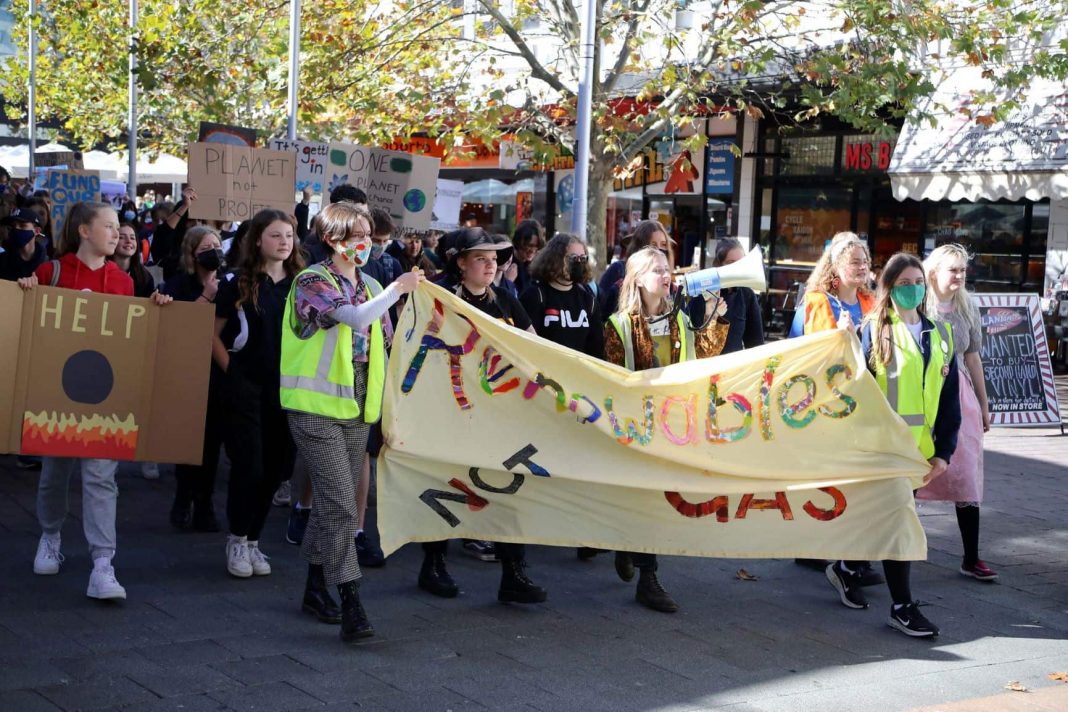Observers of the march by young people through Civic on 21 May – protesting government inaction on climate change – probably fell into two camps.
Some would have seen conscientious, motivated Generation Zs, determined to seize back the future which short-sighted politicians are stealing from them day by day. Others would have seen frightened, nearly-hysterical kids, chanting obscenities, pawns of a climate-panic movement they do not understand.
They chanted, “F… you, Scomo” as they marched. That, of course, is the gift of free speech: Australians have always cherished the right to bag out the government of the day, even though they might usually avoid using the F-word in front of their children when describing the prime minister of the day.
I sympathise with the cause that drives these youths. Governments everywhere are moving far too slowly on an issue which will impact heavily on future generations. But putting aside the question of whether their cause is just or not, the other question is whether political activism of this kind is good for young people themselves.
The Australian Election Study, run by the ANU, has conducted surveys after each federal election for the last 35 years, probing attitudes towards policy issues, leaders and democracy itself. The trends are disturbing.
Support for major parties has been steadily declining, as has trust in government. Only a quarter of the electorate believes that people in government can be trusted. Satisfaction with the democratic process has reached its lowest level in 40 years.
This is a dangerous cocktail of statistics. When people lose faith in those who govern, the leverage of governments to solve problems is diminished. Institutional voices are eroded in favour of voices at the margin; groups with simplistic answers, whether from the far left or right, gain traction they do not deserve.
Churchill famously observed that democracy is the worst form of government, except for all the others. He was right. For all its faults and failings, democracy is the best – no, the only – sustainable vehicle for building a better future.
How does the youth-led climate debate fit into this? Young people learn, particularly at school, that global warming is the greatest threat facing humanity, and that urgent action is needed to address it. But when they look to what governments are doing, they see lethargy and excuses, a general failure to respond.
Those who are angry enough will march and wave placards. But many more young people will simply draw the conclusion that our system of government is useless, and that participation in it is futile.
Among both sets of young Australians, the outcome is deep cynicism about the democratic process. No matter how strongly we feel about climate change, that outcome is deeply worrying. A nihilistic generation, inured in hopelessness, is a signpost to trouble.
Two groups of Australians must act to avert this: leaders who drag their feet on climate action, and leaders who prey on the fears of young people to stoke climate panic.
Read more:



